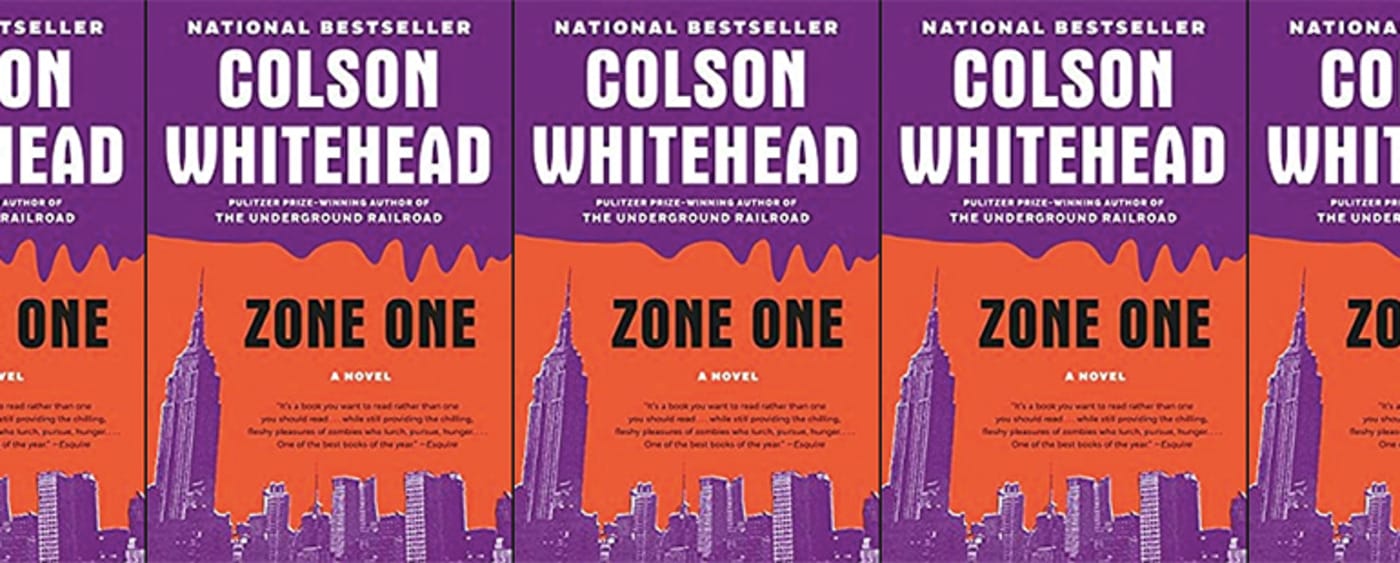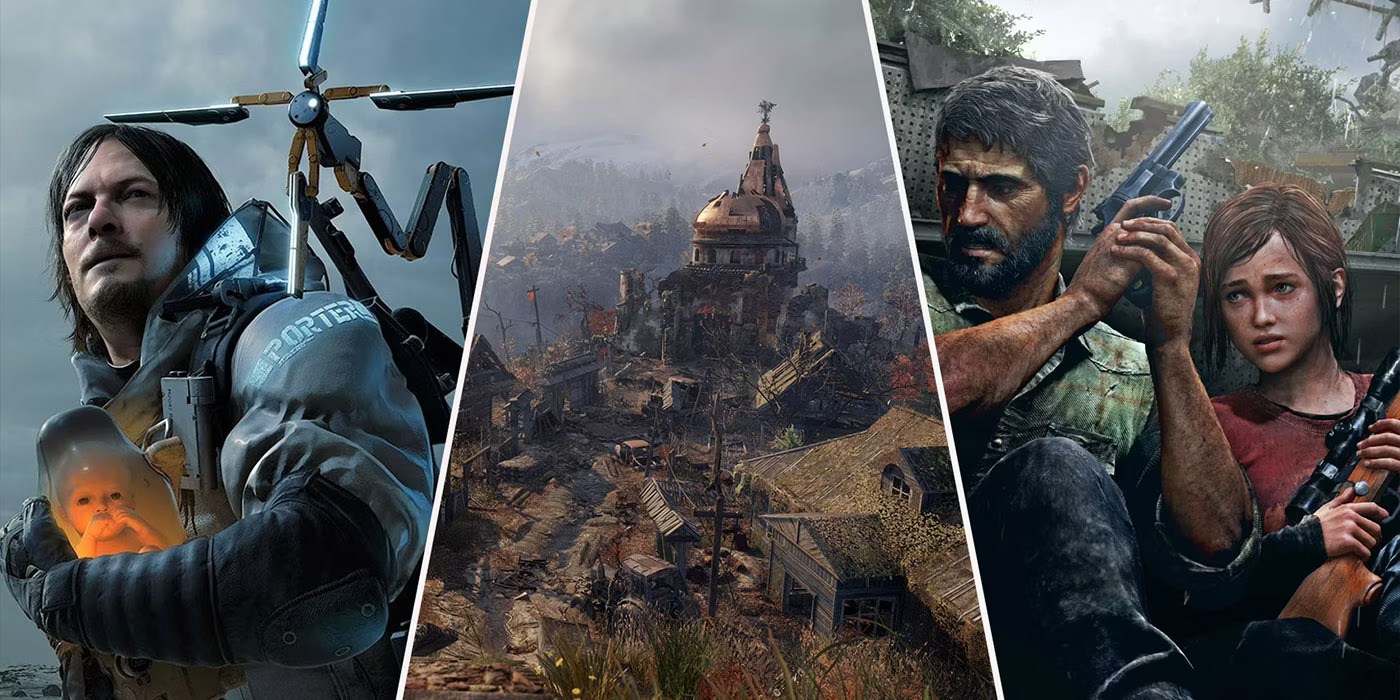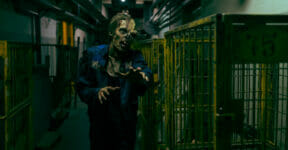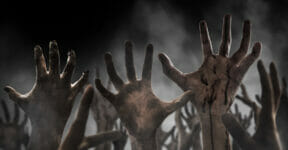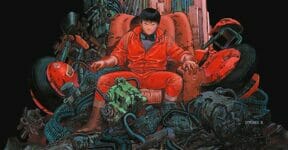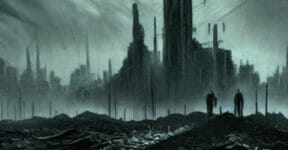Most apocalyptic and post-apocalyptic stories focus their narratives on the main characters’ fighting, hiding, struggling, and battling for survival, but not Zone One. While the novel revolves around the idea of worldwide zombie outbreak, the end of the world is pictured rather differently here: it’s almost the turning point of the apocalypse, where survivors embark on a rather mindless patrol and try to kill just about everything that doesn’t look like them.

For sure, Zone One still features the usual survivalist narrative, such as when Mark Spitz – the main character – spends his time running from zombies during the early days of the outbreak, but the number of pages for such a struggle only accounts for a tiny portion of the general theme. The bulk of the novel tells the story of Mark Spitz as a member of a sweeper unit tasked with eradicating the undead, both the aggressive and the dormant kinds, from the face of Manhattan for good.
Zone One begins in a non-unusual way when a zombie outbreak, subsequently known as the “Last Night” took place and swept the world in a rapid series of destruction to reduce the vast majority of the human population into cannibal monsters. Scattered survivors were forced into hiding from the sleepless horde of zombies without much of a plan or even hope to survive in the long run. But things have changed now. A nascent government has reformed in Buffalo, New York. Somebody in a high place has issued orders, delivering supplies, sending reinforcements, and instilling a refreshed sense of optimism for survivors. And it’s not just hearsay; the government has successfully organized some campaigns to retake the civilizations, with some camps reportedly becoming home to over 15,000 residents. Civilization is about to make a comeback in New York.
Their next big target is Manhattan, or Zone One, as the government calls it. Just like everywhere else in America, there are two types of undead in the city: the aggressive flesh-eating skels, and the catatonic harmless stragglers. Most of them have been eliminated by the military. It’s now the job of civilian sweeper units to eliminate the supposedly little remaining threats. Mark Spitz is one of those units.
The novel follows the story of Mark Spitz over the course of just three days, from Friday to Sunday, as he and his two comrades in the Omega unit carry out the duty to make sure that the area has zero zombies. It’s not exactly too much to ask even for armed civilians, but Mark Spitz has his own problems with PASD (Post-Apocalyptic Stress Disorder). His personal struggle with the mental condition is actually what drives the story forward in Zone One.
Nearly the entire mission is filled with flashbacks, guiding the readers to a better understanding of the precariousness in Manhattan and the old reality. Zone One is “the end of the world as we know it” in every sense of the word. It tells the tale of the demise of humanity in the most American way possible: with glittering lights of hope, the mighty military power, and acts of heroism from the ordinary citizens. Americans will not go down without a fight, even if it means denying the futility of resistance and the absurdity of their predicaments. It doesn’t really matter if the plague is a form of eco backlash or god-sent punishment – there’s always faith that God is merciful, a scientific solution to a thoroughly observed problem, or a military answer to terrorism. The zombies might be a form of godly apocalypse, a series of events triggered by mere coincidence in the galaxy, or an evil plan by powerful villains: Americans will handle it one way or another.
All the cultural protocols are here, from menial things like sidewalk etiquette to big questions like the meaning of life. The government, the determined citizens, and the reference to capitalism also make their marks, too. Mark Spitz himself represents the ordinary citizen tasked with taking part in the collective effort to retake America from unwelcomed zombies.
He has spent much of his life as just another guy from Long Island. But it all doesn’t matter now. All the talents in the world, the political power, the cleverness, and superiority of any sort are no longer relevant. All the zombies have rendered everyone mediocre; and in a world full of mediocrity, Mark Spitz might just come out as a hero. Whether Spitz and the nation at large actually overcome their zombie issues is never clearly given in the novel, but it’s clear that even if America fails at the end, the nation does it with all the “Americanness” they can muster. It’s the end of the United States as the Americans know it.
We think Zone One is mostly about the anxieties surrounding humans’ questionable abilities to rebuild the world. There’s no guarantee that even the most politically powerful people can bring the world back to its pre-Last Night state simply because they’re still using the old rules and methods; in this new world devastated by zombies, the old rules just don’t apply anymore.
Nobody knows how to deal with the consequences of such a major life-changing disaster. What they do simply is a desperate attempt to cling on to dear life rather than to construct a new, robust society. But when all seems lost, however, at least they can keep on fighting and experiment with new ideas to keep the hope for a better humanity alive in the meantime.
Can zombies actually run the world just like humans? Can you name a novel or film where zombies or vampires actually function like a modern civilization? We’d love to hear from you.
Other Things You Might Want to Know
Short Stories and essays by Colson Whitehead:
Short stories
● “Down in Front (2004)
● The Gangsters (2008)
● The Match (2019)
● The Theresa Job (2021)
Essays
● Lost and Found (2001)
● A Psychotronic Childhood (2012)
● Hard Times in the Uncanny Valley (2012)
● Occasional Dispatches from the Republic of Anhedonia (2013)
Does Colson Whitehead have any of his novels adapted into a film?
The upcoming film “Nickel Boys” (scheduled for release in September 2024), is based on Whitehead’s novel “The Nickel Boys” for which he received the Pulitzer Prize for Fiction in 2020. The novel itself explores the plight of Elwood Curties, a young African-American student at the Nickel Academy, which is a fictional version of the historic Dozier School for Boys.
Who exactly is Mark Spitz?
The main protagonist in Zone One is called Mark Spitz, but that’s not his actual name. The real Mark Spitz is a former competitive swimmer who won seven gold medals – each with a world-record time – at the 1972 Summer Olympics in Munich. Everyone in the novel calls the main character “Mark Spitz” as a joke because he cannot actually swim.
Check out other articles by month:

